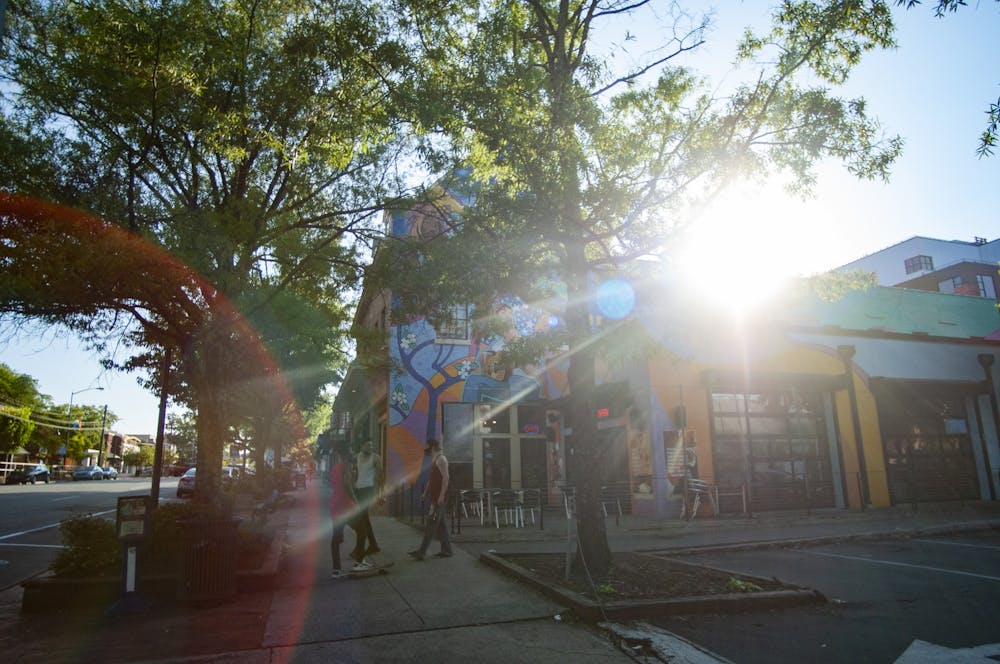Since 2003, Farrow said, he has not been allowed to return to the low-income housing where his family resides.
“All of a sudden I’m not able to go back to where my wife and I live,” Farrow said. “I can’t go home —where am I supposed to go?”
Seahorn said Farrow is not the only one to experience this.
“People are trespassed permanently from public housing routinely," Seahorn said. "There is actually no authority for the police to do this, but they do.”
Since his first time going to prison in 1992, Farrow said he has felt as if there were a mark on his back.
“I thought they were gonna kill me, this is how many times they were stopping me, they were harassing me,” he said.
He said it took a visit to a psychologist to come to understand his own fear of the police.
Carlton Chambers, a 35-year-old Black man from Orange County, shared his most recent experience with law enforcement. Chambers said while driving home from watching football at a cousin’s house at 11:30 p.m. on a Saturday, a police car began following him with its lights on.
Chambers said he knew his headlight was out but wanted to reach home before pulling over because he felt safer there. He said that when he stopped in his driveway, two to four officers surrounded his vehicle with guns drawn. He put his hands up.
Chambers said the police response was excessive.
“Any time someone points a gun at you, to me I feel like that’s for one reason — that’s to shoot,” he said. “You don’t pull guns on people unless that’s what you plan to do.”
Janice Harper, a Black woman on the panel, spoke about her ward, whom she referred to as her son, who was sentenced to prison after he shot and killed a white man in Chapel Hill in 2018. She said she knew her son was in the wrong and needed to spend time in prison, but that he was looked at “like dirt” or a “wild vicious animal" during his trial.
To get the day's news and headlines in your inbox each morning, sign up for our email newsletters.
She said in his trial, none of his motivations for self-defense were mentioned, and that discussions of a 16-year plea deal one day changed into a 20 years and eight months to 25 years and 10 months sentence.
“I feel very strongly that they threw the books at him because he’s a young Black male and this was a white man that he shot and killed. And I’m very, very concerned about the criminal justice system and the way they treat people, particularly minorities,” Harper said.
Harper said her son's case is evidence of a larger conversation that needs to be had about race in the criminal justice system.
“How do we eliminate racial bias in our criminal justice system?" Harper asked. "Do you think if my son had killed a Black man, do you think he would have gotten 20 years?”
Seahorn invited listeners to let the organizers know if they wanted to hear more stories from their own communities, and said this panel was just a first step toward justice reform in Orange County.
“The first thing we want is for people to know what’s happening. And then secondly, we want to try to come up with some ways and some ideas to make this not the norm any longer, because it’s been the norm for many, many years," Seahorn said. "And then we want to try to put some of those things into practice."
@DTHCityState | city@dailytarheel.com




